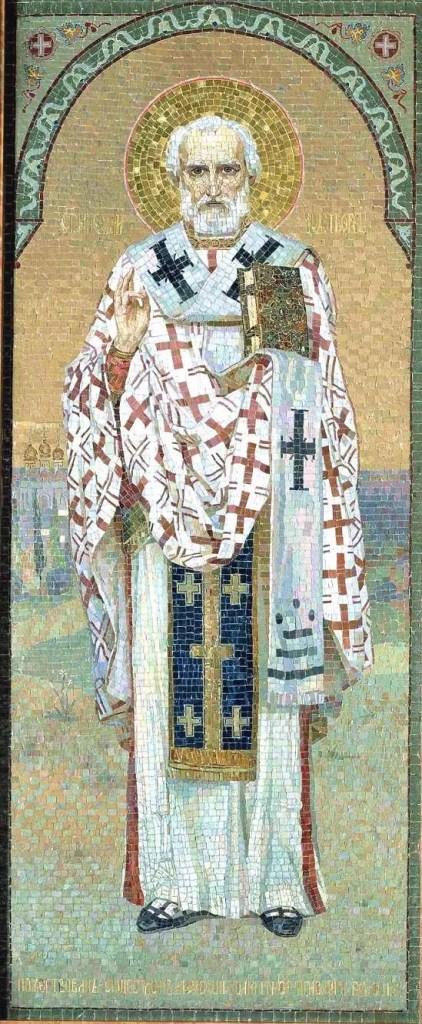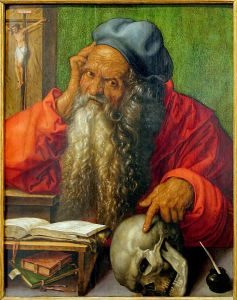Let us strive to comprehend the mystery. The reason God is in the flesh is to kill the death that lurks there. As diseases are cured by medicines and assimilated by the body; and as darkness in a house is dispelled by the coming of light, so death, which held sway over human nature, is done away with by the coming of God.
And as ice formed on water covers its surface as long as night and darkness last but melts under the warmth of the sun, so death reigned until the coming of Christ, but when the grace of God our Savior appeared and the Sun of Justice rose, death was swallowed up in victory, unable to beat the presence of true life. How great is God’s goodness, how deep his love for us!
Let us join the shepherds in giving glory to God, let us dance with the angels and sing. Today a Savior has been born to us. He is Christ the Lord. The Lord is God and He has appeared to us, not as God which would have been terrifying for our weakness, but as a slave so as to free those who live in slavery.
Who could be so lacking in sensibility and so ungrateful as not to join all here present in our gladness, exultation and radiant joy?
The feast belongs to the whole of creation. Let everyone join in and be grateful. Let our voices too ring out in songs of jubilation!






